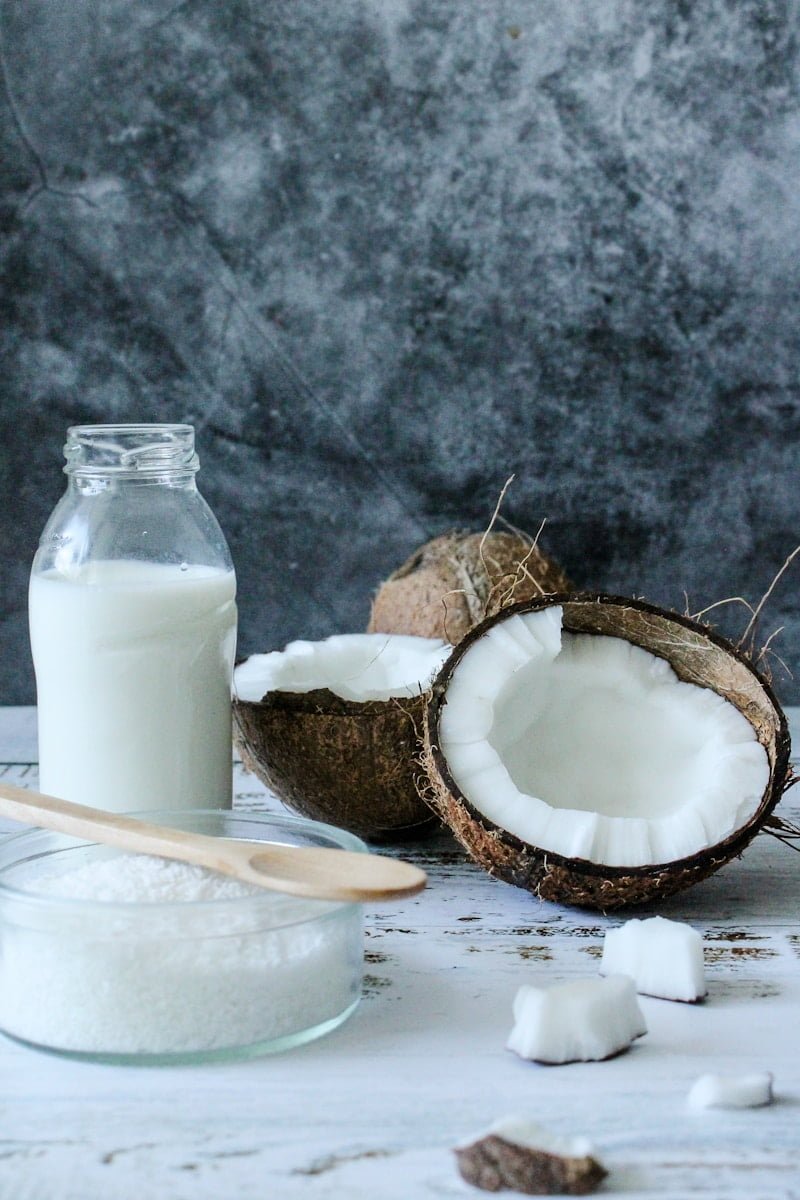Coconut milk has become a staple in kitchens around the globe, not just for its creamy texture and tropical flavor but also for its versatility in recipes and as a dairy alternative. But when it comes to purchasing coconut milk, consumers are often faced with a choice: should you buy it in a can or a carton? Here at TheKitchenApplianceDad.com, we’re delving into the pros and cons of each to help you make the best choice for your culinary needs.
Canned Coconut Milk
Canned coconut milk is typically thicker and richer than its carton counterpart. It’s often used in cooking, particularly in curries, soups, and sauces, where its full-bodied consistency and higher fat content can add a luxurious texture to dishes.

Pros of Canned Coconut Milk
- Richer Texture: Due to its higher fat content, canned coconut milk has a creamier texture, making it ideal for recipes that require a thicker consistency.
- More Intense Flavor: The concentrated nature of canned coconut milk gives it a more potent coconut flavor, perfect for dishes where coconut is the star.
- Less Processed: Generally, canned coconut milk contains fewer additives and stabilizers compared to carton versions.
- Heat Stability: The higher fat content helps canned coconut milk withstand higher cooking temperatures without curdling.
Cons of Canned Coconut Milk
- Higher in Calories and Fat: While the richness is a pro for some recipes, it may not be ideal for those looking for lighter options.
- Potential for BPA: Some cans are lined with BPA, a chemical that some consumers prefer to avoid. However, many brands now offer BPA-free cans.
- Separation: The fat and liquid can separate in the can, requiring you to mix it before use.
Carton Coconut Milk
Carton coconut milk is generally a more diluted product, designed for drinking or as a dairy-free alternative to cow’s milk in cereals, smoothies, and beverages like coffee and tea.
Pros of Carton Coconut Milk
- Lower in Fat and Calories: Carton coconut milk often has a lower fat content and fewer calories, making it a lighter choice.
- Convenience: It’s usually sold in resealable containers and does not need to be refrigerated until opened, making it easy to store and use over time.
- Fortified Options: Many carton versions are fortified with vitamins and minerals, such as vitamin D and calcium.
- Better for Drinking: Its thinner consistency makes it more suitable as a drink or mixed into beverages.
Cons of Carton Coconut Milk
- Added Ingredients: To maintain consistency and extend shelf life, carton coconut milk often contains stabilizers, gums, and sweeteners.
- Less Coconut Flavor: It tends to have a more subdued coconut flavor due to the dilution.
- Not Ideal for Cooking: It may not provide the desired creamy texture for certain recipes that require a thicker coconut milk.
Which Is Best and Why?
The answer largely depends on your intended use. For culinary applications where you need rich, creamy textures, such as in curries or desserts, canned coconut milk is undoubtedly the better choice. Its higher fat content and richer coconut flavor can elevate a dish significantly.
On the other hand, if you’re looking for a dairy-free milk alternative for your coffee, smoothies, or breakfast cereal, carton coconut milk is more appropriate. It’s designed to mimic the consistency of cow’s milk and often comes with added nutritional benefits, such as added vitamins and minerals.
When shopping for coconut milk, always read the labels carefully. For canned options, look for those that are BPA-free and have minimal additives. For carton choices, check the ingredients list for unnecessary fillers and sweeteners, especially if you’re watching your sugar intake.
Conclusion
Both canned and carton coconut milk have their place in the kitchen. The choice ultimately boils down to your personal needs and the specific requirements of the recipe you’re preparing.
Key Takeaways
- Canned Coconut Milk: Choose this for cooking and baking where you need a rich, creamy texture and more intense coconut flavor. Great for thick sauces, curries, and decadent desserts.
- Carton Coconut Milk: Opt for this when you need a light dairy-free milk alternative for beverages, cereals, or light smoothies. It’s also typically fortified with additional nutrients.
- Read Labels: Always check product labels for additives, BPA, and fortifications to make informed choices based on your health and dietary preferences.
- Usage Dictates Choice: Let the intended use guide your decision, balancing health considerations with the culinary outcome you desire.
Whether you’re whipping up a tropical curry or simply pouring a splash of coconut milk into your morning coffee, understanding the properties and uses of both canned and carton coconut milk will help you achieve the best results in both taste and texture. Keep this guide fromTheKitchenApplianceDad.com in mind next time you’re navigating the grocery store aisles, and you’ll be sure to make the best choice for your kitchen adventures. Happy cooking and sipping!


